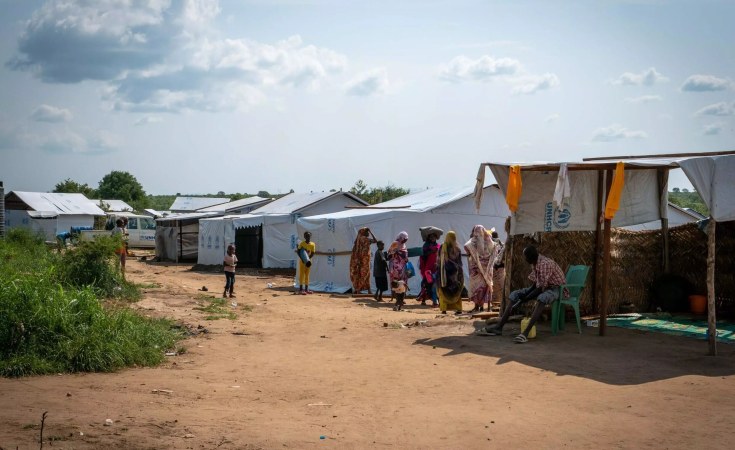Khartoum / Jebel Awliya — Plumes of smoke rose above the Sudanese capital of Khartoum on Sunday, after the paramilitary Rapid Support Forces (RSF) resumed shelling of the General Command of the Sudan Armed Forces (SAF). Battles in the vicinity had subsided over the past days. More than 190 people have reportedly been killed in areal bombardments of Jebel Awlia, south of Khartoum.
Witnesses told Radio Dabanga that plumes of smoke rose in the sky over Khartoum as a result of the shelling. The SAF and the RSF also exchanged artillery fire to and from the Karari military base in Omdurman. A number of RSF shells reportedly landed inside the camp.
The RSF also subjected targets in the Shambat area of Bahri (Khartoum North) to an hours-long artillery barrage on Saturday evening.
Members of the public in Omdurman complained about the continuation of indiscriminate shelling, stray bullets, and lack of security. They told Radio Dabanga that electricity has been cut for five days, the water supply has been down for four days, and people hare suffering from a lack of food. Most residents have left their homes and are no displaced.
A caller from Omdurman criticised the failure of the SAF to allow food to enter the areas under RSF control, predicting long queues at bakeries, as there is only a week's supply of flour.
Jebel Awliya
The Jabel Awliya Sector Emergency Room reports that more than 190 people were killed and 600 others injured as a result of RSF artillery bombardment of SAF air defence positions in the Jabal Awliya area (40 kilometres south of Khartoum) during the past two days. The SAF responded with on the Taibat El Hassanab base, 17 kilometres north of Jabel Awliya.
Jebel Awliya, on the banks of the White Nile, is considered the southern gateway to Khartoum, with a series of hills and a reservoir area.
The Rapid Support Forces control the area extending from El Shajara, south of Khartoum, to the outskirts of Jebel Awliya, while the army maintains control over El Nujoumi Air Base in Jebel Awliya itself.


